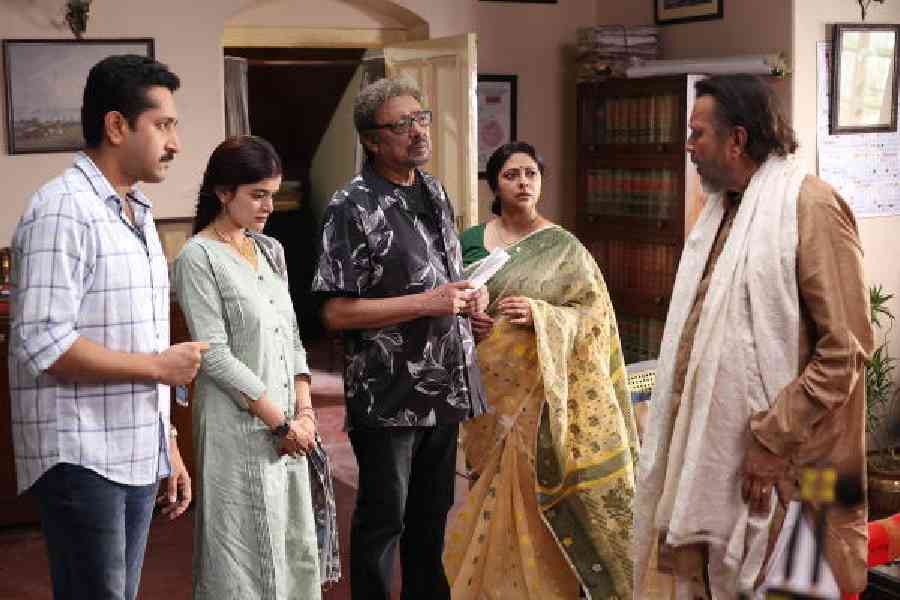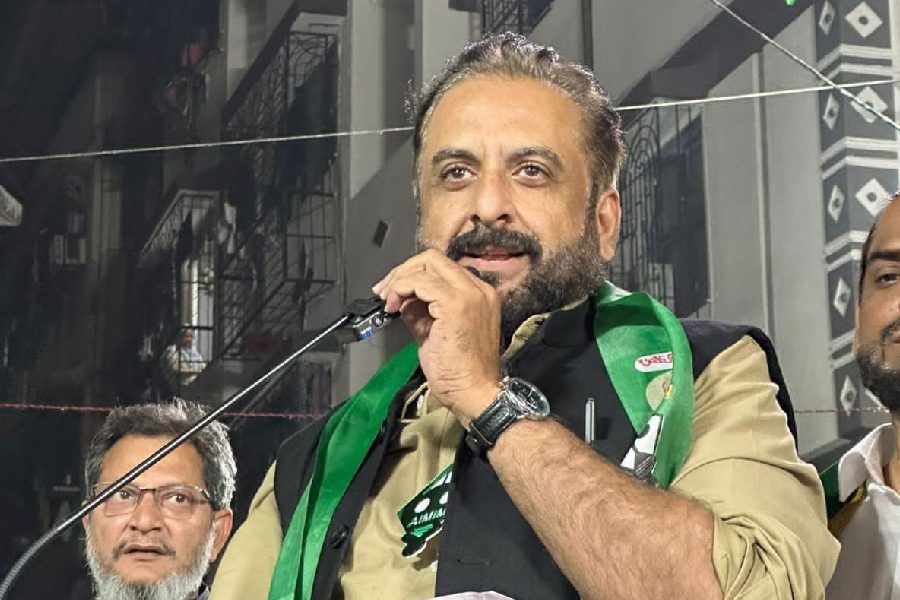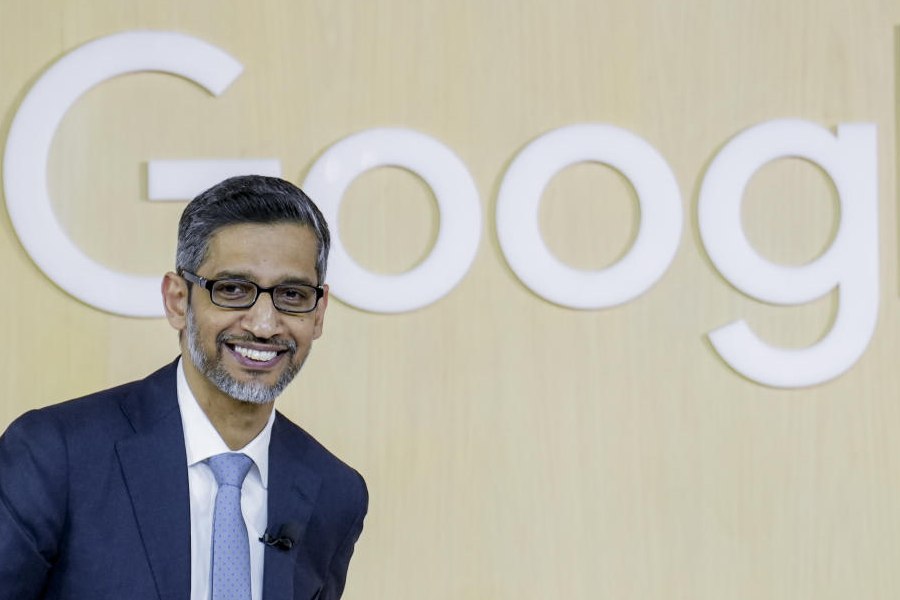The film Shreeman VS Shreemati talks about the complexities of married relationships and the power of true love in overcoming problems. t2 met up with its lead actor Mithun Chakraborty and cast members Anjana Basu and Roshni Bhattacharya, for a chat about the film, which released on May 1.
What struck you most about the story of Shreeman VS Shreemati when you heard it for the first time?
Mithun: My first impression was that it deals with a timely and relevant concept — the relationship between a husband and wife, and the problems that develop in any marital relationship. The story was about two generations with two sets of couples, and it was interesting to see how the conflicts change with time and yet remain the same. The romantic triangle featuring much older characters also attracted me to this story.
Anjana, what was it about the film that attracted you? Why did you say yes to it?
Anjana: Firstly, my character is one of the central and most important characters of the story. I am the Shreemati of the film’s title. Added to that, I would get the opportunity to star opposite someone of the stature of Mithun Chakraborty, who would play my husband. That could have been reason enough for me to jump at the chance.
However, I also found the story to be very beautiful. And of course, I was also eager to work with an actor like Anjan Dutt. The idea of sharing screen space with these two screen icons was very exciting for me. I couldn’t have asked for anything better.
Share with us your most memorable experience from the shooting floors.
Anjana: The entire experience is memorable to me. Every frame, every shot that I shared with Mithunda was a learning experience. Even though there wasn’t much room to improvise, his inputs were always priceless. After every shot, I would ask him for his opinion and he would offer little tips to me. I think even Pathikrit (Basu; director) will agree that he too has learned a lot from Mithunda’s inputs. And as for me, his guidance truly helped enhance my performance and gave my character a different dimension altogether.
Being an old-timer myself, I prefer to talk with and work with those who are somewhat senior in years. And I really enjoyed the off-camera conversations I shared with Mithunda, particularly those about the bygone eras. The stories of his varied experiences in cinema over the years also enriched me greatly. I had worked with Anjanda (Dutt) earlier in a couple of films. And so I knew that he was always perfect in his own performance. Mithunda was always like a guardian on set, ready to help out with little bits and pieces of advice that I found invaluable. In fact, the learning I received from him during the making of this film is something I will remember and cherish always.
You were the romantic interest of both the stars of this film. Was this an enjoyable role for you to play?
Anjana: Rather than concentrating on how to make my character stand out, I tried to portray it in a way so that I could complement the character of Justice Amal Chowdhury, played by Mithunda. As far as I understood my role, I was supposed to balance his presence on screen. As the two of us are shown to be engaged in a legal battle for divorce for 27 years, our scenes were to be fraught with deep emotion and intensity. And that is why, rather than trying to display any extraordinary acting talent, I only tried to express the natural feelings of Aparna, my character. I felt that it would be the best way of bringing out the shades of her personality, as well as align the character with the purpose of the film. My whole performance was like an emotional journey, and I just went with the flow of it.
Roshni, you play the younger, newly-married Aparna. Did your role involve a lot of romantic scenes?
Roshni: Not really. Pathkrit has structured the story in a way that is unusual for romantic comedies. Here, the relationship equation between Amal Chowdhury and Aparna is the focus of the film. And rather than portraying romance or intimacy through physical gestures like hugging or kissing, in this film, the audience will find the young couple’s love for each other expressed in a completely different way — like writing letters, waiting for the partner, or waiting for their phone calls. So we (Satyam Bhattacharya, who played a young Amal, and herself) tried to convey those little moments and emotions to express the depth of the relationship of the two characters, whose older versions are portrayed by Mithunda and Anjanadi. Hopefully, we have been able to fulfil the ideas imagined by Pathikrit.
What was the brief from the director regarding your scenes with Satyam’s character?
Roshni: He just told me to be natural and play it by the ear. There was hardly any need to improvise because the script was very well written. You could understand the emotions of the character just by reading the script. So I just had to behave according to the mood of the scene, and somewhere down the line that worked.
Did you get any reference from Anjanadi about your character?
Roshni: Yes, initially I did ...Anjana: Roshni came to me for a suggestion about a scene. She showed me some dialogues and requested me to show her how I, as Aparna, would speak those lines. That really touched me, as it has been years since a young actor came to ask me for guidance. I helped her out as best I could, and then she reproduced it in her own way.Roshni: I tried to understand Aparna’s nature and style of speaking from how Anjanadi spoke those lines and then tried to talk in the same way, only infusing a little more energy and vigour in my voice as would be appropriate for a younger woman.
An elderly couple hold centre stage in Shreeman Vs Shreemati, a romantic comedy. Your thoughts on this concept?
Mithun: What’s wrong with it? (smiles) Times are changing and so are our viewers. I think the older generation brings a sense of balance to the love stories of the youngsters. So it is a good idea. But I don’t fall into that category yet... I am still on the side of the youngsters!
Anjana: Contemporary stories are moving away from usual and predictable lines, because audiences are demanding it and are ready for it. In recent times, we have seen that films with middle-aged or elderly protagonists have done very well, though they are not love stories in the conventional sense. Mithunda himself has starred in quite a few of these films that have been very successful. And since he is always very eager to work in Bengali films, and is still so fit, I am sure we can look forward to many more from him as well.










